Vacant
Manager – Programme Implementation
“The purpose of this unit is to promote partnerships to respond to quality training and development in the rural sector, with a focus on youth development, special needs and sustainability.”
The work of the Special Projects Unit is supported by the following
sub-projects:
Science, Technology, Engineering Mathematics
(STEM) Project

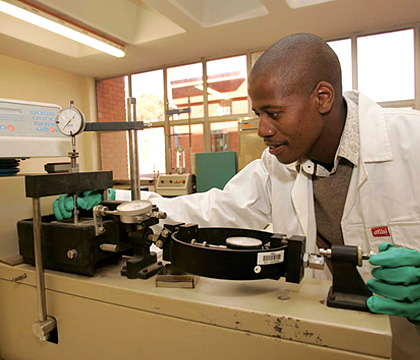
Adult Education
& Training (AET)
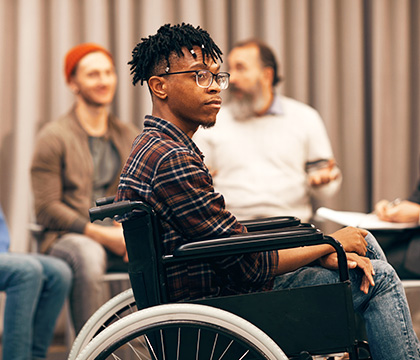
People with
Disabilities Project

Green Skills
Development
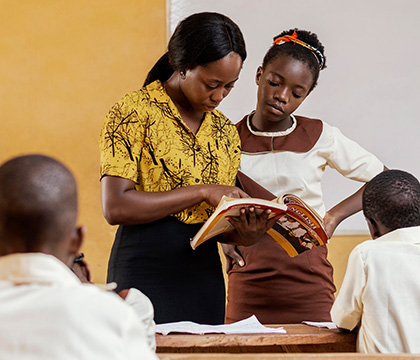
NGO and
CBO Project
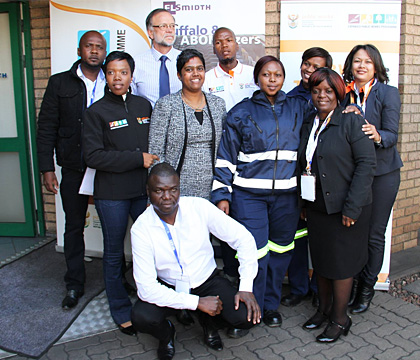
Co-operatives
Project

Black Females in
Manufacturing and Engineering MDP Project
Persons with Disabilities
The merSETA’s programme for Persons with Disabilities responds to the objectives in NSDS lll to provide opportunities for access and redress that could culminate into decent work.
Roundtable discussions started in 2011 and by June 2012 the merSETA’s Charter for Persons with Disabilities was tabled at the 1st Persons with Disabilities forum. The vision has been explained as follows in the Charter:
An integrated merSETA five-year strategy, supporting an enabling programme to promote skills development and empowerment of people with disabilities, through a portfolio of initiatives, and structured development of a merSETA community of practice with the involvement of key stakeholders and partners to utilise the programme as a vehicle for addressing key policy and legislative objectives.
Integral to the Charter is a set of outcomes, referring to:
- People with different disabilities are supported through effective learning interventions.
- Staff and stakeholder capacity building.
- Knowledge management.
- Curriculum Development and courseware, directed at persons with disabilities.
- Rise in employment and access statistics for PWD.
- Entrepreneurship training, mentoring and coaching.
- Sharing best practices on courseware resources.
- Career path/career guidance.

Sharing best practices on courseware resources.
Science, Technology, Engineering Mathematics (STEM) Project
Project aimed at supporting the Learners in FET for improvement of the Maths, and Science and English Grade 10, 11 and 12, to enhance chances of entering the University and University of Technologies.
The other part of the STEM support is focusing on public FET lecturer development programmes, to facilitate training of lecturer on Teaching Methodologies in Maths, Science and Engineering related. At this point the project has entered 1950 Learners.
NGO and CBO Project
The objective of this project is to provide skills development support to NGO/CBO’s linked to the merSETA’s scope of coverage
And to ultimately promote employability and sustainable livelihoods through skills development using NGO’s and CBO’s as a delivery vehicle. Recently we are supporting 410 learners across South Africa.

Co-operatives Project
The aim of this project is to provide support to Community Based Co-Operatives,
linked to the merSETA sector and the focus should be on Training for Rural Economic Empowerment (TREE).
Black Females in Manufacturing and Engineering MDP Project
The aim of this project is to provide a work-integrated Management Development Programme at NQF L6 and & 7 for black females earmarked for career progression into middle and senior management.
Green Skills Development
The King Report on Corporate Governance for South Africa 2009 (“King lll”)
Emphasises that sound environmental governance is central to the sustainability of business, and cites that “environmental issues should form part of business performance and [its] risk management strategies.” Sustainable governance and business practices imply not only energy efficiency, but a holistic approach to business that makes ecological sense, complies with legislation, as well as ongoing capacity building and staff development to embrace “green changes”.
The merSETA believes that SETAs should play a central role in supporting business, in particular the manufacturing, engineering, automotive and related industries, in sustainable green skills development.
In this respect, a strategic approach,
Which filters through the identified eight merSETA strategic programmes, has been envisaged to ensure that the notion of sustainability becomes integral to planning and implementation. Such an approach requires a developmental framework, focusing on outcome streams that could underpin an incremental support process in key areas.
Draft work towards a Sustainable Green Skills Development Framework started in April 2012. An important element of the draft process has been networking with key organisation and government departments to adhere to the NSDS lll imperative for a partnership approach to skills development.

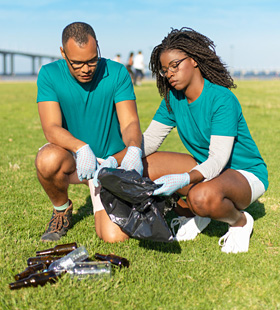

Subsequently, merSETA entered into a cooperation agreement with the GIZ to focus on the following outcomes:
- A research agenda, inclusive of a survey of merSETA levy-paying companies in relation to measures to reduce their carbon footprint. The intension is that the survey outcomes could inform the type of support initiatives required, e.g. capacity building and professional development in the context of green business processes.
- Investigating the inclusion of green skill sets in existing qualifications, curricula and learning support materials, as well as support of Development Quality Partners (DQPs) in the QCTO domain to embed green skills in new qualifications.
- Promotions of clean and lean manufacturing, as well as waste reduction and recycling of waste by collaborating with critical interest groups who already developed internationally bench-marked programmes.
- Promoting green skills development and the notion of green jobs in youth, rural and FET programmes.

